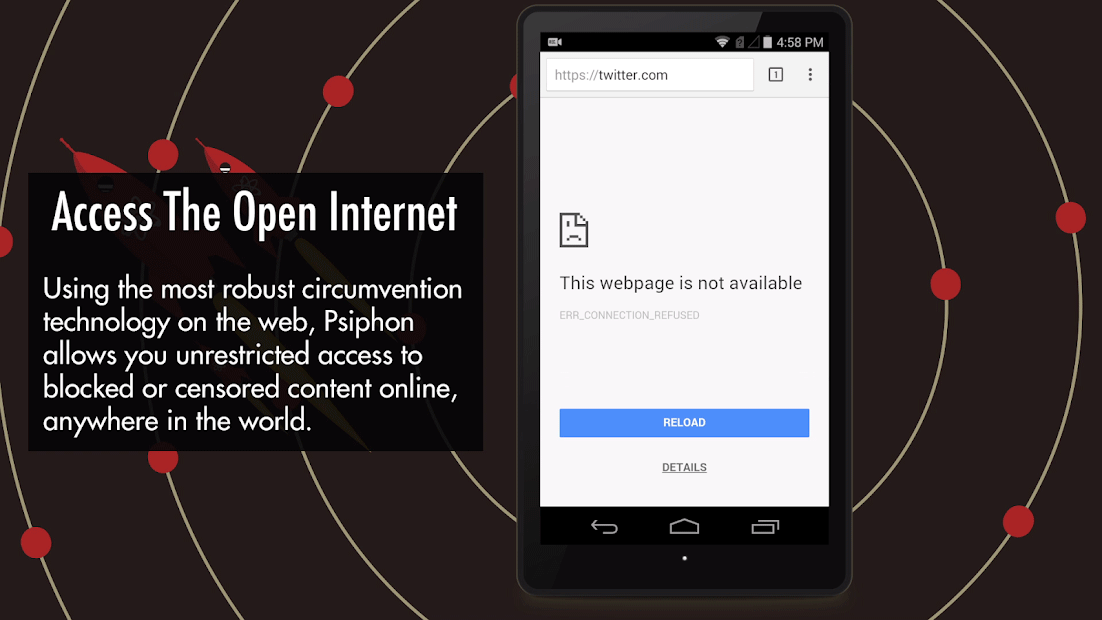Man
Professional
- Messages
- 3,221
- Reaction score
- 1,189
- Points
- 113

Events in recent years show that shutting down the Internet in a specific country or city is not an imaginary threat, but a completely feasible action. This happens with alarming regularity in different countries around the world. For example, the international association Internet Society recorded 49 artificially caused shutdowns.
in 2021, including 17 national, 26 regional and 6 partial (restrictions on individual services). A partial shutdown involves selective shutdown of services, such as VPN, instant messengers, HTTPS protocol, and so on.
A full shutdown means a complete shutdown of the Internet, including the mobile network. This is an emergency measure that is accompanied by major losses for the economy, so it is used only as a last resort and for a short period.
One way or another, citizens should know in advance what to do in such a situation in order to stay in touch with family and friends during these few days.
Preparation
Some necessary actions will be difficult or impossible to perform after the Internet is disconnected, so it is better to do them in advance.
Buy Android Smartphone
It is important to buy a smartphone with the Android operating system in advance and download the necessary software. In the first period after the shutdown, chaos is possible in society, so the prices of Android smartphones may temporarily increase. It is better to take care of this in advance. Any old smartphone for 10-20 dollars from a flea market will do for work.
Unfortunately, iOS devices do not support the functionality of direct WiFi communication via peer-to-peer messengers, so after the Internet is disconnected, they will be rather useless in this regard.
Download software
You should download two software packages to your phone in advance:
- Software for bypassing service restrictions in case of partial shutdown.
- Peer-to-peer messengers for communication in case of complete internet shutdown (mesh networks, Wi-Fi Direct).
The Psiphon app has proven itself to be a good way to bypass restrictions during a partial shutdown (blocking of individual websites, social networks, HTTPS).

A selection of films, music, and books with convenient readers/players would also be useful. For example, CoolReader for books, NewPipe for downloading video/audio from YouTube and viewing in the future, AIMP for podcasts and music. And so on.
This is the minimum set that you need to keep on your smartphone in case of an Internet outage.
2. Actions after disconnection
The main task after the shutdown is to help friends, relatives and neighbors who were not prepared for the shutdown: did not buy Android smartphones and did not download the appropriate software.
We can only maintain communication with those who have the same messenger. Therefore, the main task is to distribute it as much as possible.
There are different ways:
- Post informational announcements
- Burn flash drives with software and instructions for its use and further distribution
- Set up an open WiFi hotspot for distributing software
- Use home Ethernet networks to distribute software and communicate with neighbors
- Find a channel to the open Internet, if there is one left somewhere (for example, in scientific institutions) and use it as a gateway for packet data transmission
For example, the peer-to-peer messenger Briar can be distributed directly via WiFi. That is, the program can be transferred to smartphones where it is not yet installed.
Peer-to-peer messengers
Among peer-to-peer messengers that work without the Internet, the most famous one now is Briar. It was developed specifically for such a shutdown and works via Bluetooth and Wi-Fi.

You can download the APK from the project's website, and after disconnection, transfer the program directly from smartphone to smartphone. Briar itself offers to raise an access point and distribute software to neighbors.
Complete decentralization
In case of internet outage, decentralized P2P messengers using mesh network without central servers are well suited for communication. Ideally, it would be desirable for the client to be independent of the communication channel. In this case, people could exchange messages in the messenger via any channel, be it dial-up or radio, Wi-Fi Direct, Bluetooth, Apple Multipeer Connectivity Framework, ANT+, LoRa or magnetic media. This is roughly how networks like Fido worked before the advent of the internet: packets with messages from all clients to all other clients could be transmitted between nodes via any channel, on floppy disks or via dial-up. Unfortunately, such a universal messenger for smartphones has not yet been developed…
P.S. In 2011, the UN recognized access to the Internet as one of the basic human rights. Thus, disconnecting the Internet today can be considered a serious offense.
Source
Last edited:

